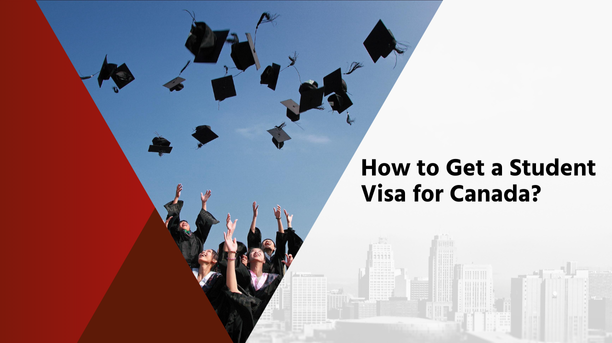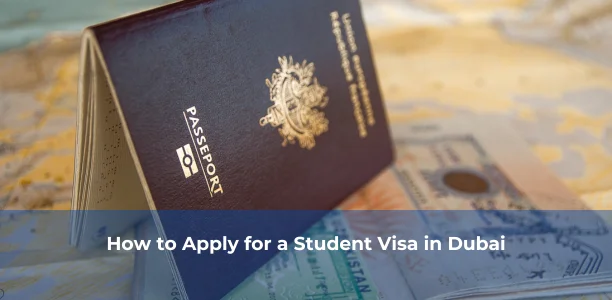
How to Get a Student Visa for Canada?
Canada has become a top destination for international students due to its high-quality education, diverse culture, and welcoming environment. Home to some of the world’s best universities and colleges, Canada offers a wide variety of programs in fields such as technology, health, and business. Moreover, Canada’s flexible post-study work options and opportunities for permanent residency make it an attractive option for students seeking global exposure.
To study in Canada, one of the first things you need is a student visa for Canada, also known as a study permit.
Understanding the Canadian Study Permit
A Canadian study permit is not a visa; it is a document that allows you to study in Canada at designated learning institutions (DLIs). You will also need a visitor visa or an electronic travel authorization (eTA) to enter Canada. Once you have your study permit, you are allowed to live in Canada for the duration of your program.
It is essential to know that your study permit is valid only as long as you are enrolled in your educational program. You must also maintain satisfactory academic progress to retain your permit.
Key Requirements for a Student Visa for Canada
To apply for a student visa for Canada, there are several important requirements that must be met. The general eligibility criteria include:
- Letter of Acceptance from a DLI: You must have an acceptance letter from a Designated Learning Institution (DLI) in Canada.
- Proof of Sufficient Funds: You will need to show that you can support yourself financially while in Canada. This includes tuition fees, living expenses, and return transportation.
- No Criminal Record: You must have no criminal record and be willing to provide a police clearance certificate, if required.
- Health Examination: You might need to undergo a medical examination to prove that you are in good health.
- Intent to Return Home: You need to convince the immigration officer that you will leave Canada upon completing your studies, though many students transition to permanent residency later.
How to Apply for a Student Visa for Canada
The process to apply for a Canadian student visa can be done online or via paper application, but the online process is quicker and recommended. Here’s a step-by-step guide to applying for your study permit:
- Get Your Documents Ready: Ensure you have the following documents:
- Acceptance Letter from a DLI: This is essential to start the process.
- Proof of Financial Support: This can include bank statements, loans, or scholarships.
- Valid Passport: Ensure your passport is valid for the entire duration of your stay.
- Photographs and ID: Follow Canadian visa guidelines for passport-sized photos.
- Apply Online: Go to the Government of Canada website and create an account. Fill out the study permit application form and upload your documents.
- Pay the Application Fee: The processing fee for a Canadian study permit is CAD $150. Ensure that you keep the payment receipt as proof of payment.
- Submit Biometrics and Medical Examination: Depending on your country of residence, you may need to provide biometrics and undergo a medical examination. You will be informed if this is required.
- Attend an Interview (if required): In some cases, you may be asked to attend an interview at the local visa office. Be prepared to answer questions about your study plans and financial support.
- Wait for Your Permit: The processing time for a Canadian student visa typically takes 4-6 weeks, but this can vary depending on your country of application and time of year. You will be notified once your application is approved.
Documents Required for a Canadian Student Visa
When applying for a student visa for Canada, be sure to have all necessary documents in order:
- Acceptance Letter from a DLI: This confirms your enrolment in a Canadian institution.
- Valid Passport: Your passport must remain valid throughout your stay in Canada.
- Proof of Financial Support: Demonstrate that you have enough money to cover tuition fees, living expenses, and travel costs.
- Statement of Purpose: Explain why you want to study in Canada and how it fits with your academic and career goals.
- Biometrics (if required): This includes fingerprinting and photograph submissions, as needed.
- Police Clearance and Medical Reports (if required): You may be asked to provide police clearance and medical records depending on your country of residence.
Working While Studying in Canada
A significant benefit of holding a Canadian student visa is the ability to work part-time during your studies. As an international student, you can work up to 20 hours per week during regular academic sessions and full-time during scheduled breaks such as winter or summer holidays. However, it’s crucial that your study permit indicates your eligibility to work.
After completing your studies, you can apply for a Post-Graduation Work Permit (PGWP), which allows you to gain valuable work experience in Canada. The duration of your PGWP depends on the length of your study program, and it could be up to three years.
Common Mistakes to Avoid During the Application Process
The application process for a student visa for Canada is detailed, and even minor errors can lead to delays or rejection. Here are common mistakes to avoid:
- Incomplete Application: Double-check all forms and documents before submission.
- Insufficient Financial Proof: Be sure to demonstrate sufficient funds for tuition, living expenses, and travel costs.
- Weak Statement of Purpose: Clearly explain your reasons for studying in Canada and how the program aligns with your career goals.
- Late Application Submission: Apply early to avoid delays, especially since visa processing times can vary.
Post-Visa Approval: Preparing for Your Move to Canada
Once your student visa for Canada is approved, it’s time to prepare for your move. Here are a few things to consider before departing:
- Arrange Accommodation: Find on-campus or off-campus housing well in advance.
- Prepare Your Finances: Ensure you have access to funds for tuition, rent, and other expenses as soon as you arrive.
- Health Insurance: Some provinces in Canada offer healthcare coverage to international students, but you may need to arrange private health insurance for your stay.
Transitioning to Permanent Residency
Canada is an attractive option for students seeking post-study opportunities, including permanent residency (PR). After completing your studies, the Post-Graduation Work Permit (PGWP) allows you to work in Canada, and this work experience can contribute to your eligibility for programs like Express Entry or Provincial Nominee Program (PNP). Many students successfully transition from study visas to PR status, making Canada a top choice for long-term career prospects.
Reyna Overseas: Your Trusted Partner for Canadian Study Visas
At Reyna Overseas, we are proud to be one of the leading study abroad consultants in Ahmedabad, offering comprehensive support to students seeking education in Canada. With two branches, a head office, and a team of 50+ professionals, we provide end-to-end services, including study abroad counselling, career counselling, visa processing assistance, and IELTS/PTE coaching (both online and offline). With more than a decade of experience, we are committed to helping you achieve your dream of studying in Canada.
Contact Reyna Overseas Today for Canadian Study Visa Assistance
Start your journey to one of the world’s top educational destinations with Reyna Overseas. Our experienced team is here to guide you through the entire Canadian student visa process, ensuring that you have all the tools and support you need to succeed. Contact us today for personalized assistance!




